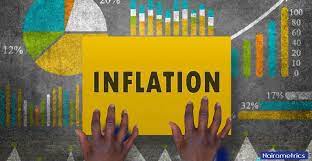The National Bureau of Statistics (NBS) has released its Consumer Price Index (CPI) and Inflation Report for December, revealing that Nigeria’s headline inflation rate has surged to 28.92%. This marks a 0.72% increase compared to the previous month’s rate of 28.20%. On a year-on-year basis, the headline inflation rate for December 2023 was 7.58% higher than the rate recorded in November 2022 at 21.34%.
The report attributes the increase in the headline index to various items in the basket of goods and services, with notable rises in food and non-alcoholic beverages, housing, water, electricity, gas, clothing, footwear, and transport. The inflation surge was observed both on a year-on-year and month-on-month basis.
Food inflation for December 2023 rose to 33.93% on a year-on-year basis, indicating a 10.18% increase compared to December 2022 at 23.75%. The month-on-month food inflation rate for December was 2.72%, representing a 0.30% increase from the previous month.
The report emphasizes the impact of the increase in the average prices of various items on the overall inflation rate. It also underscores the importance of residents reporting suspicious activities related to the vandalism of streetlights, despite ongoing efforts to restore and make all streetlights functional across the city.
The year-on-year core inflation rate, excluding volatile items like farm produce and energy, stood at 23.06% in December 2023. This represents a 4.85% increase compared to the rate recorded in December 2022 at 18.21%.
The report concludes by highlighting the urban and rural inflation rates, providing insights into food inflation, and presenting state-wise inflation profiles. In December 2023, the urban inflation rate was 31.00%, while the rural inflation rate stood at 27.10%. The highest all items inflation rate on a year-on-year basis was recorded in Kogi at 35.58%, while Borno recorded the slowest rise at 23.27%. On a month-on-month basis, Bayelsa had the highest inflation rate at 3.66%, and Nasarawa recorded the slowest rise at 1.36%.
The findings underscore the challenges posed by rising inflation and emphasize the need for proactive measures to address the economic impact on residents and businesses.

